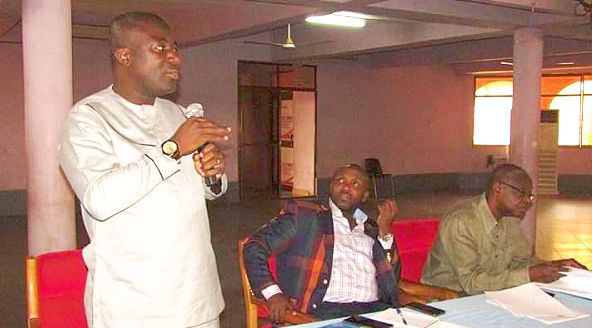
Participants raise varied concerns on ropaa
Participants drawn from various sectors in a consultative meeting on the implementation of the Representation of the People’s Amendment Act (ROPAA) in Tamale, the northern regional capital, have raised varied concerns about the modalities of determining the eligibility of Ghanaian citizens abroad to take part in the exercise.
While some were of the view that many Ghanaian citizens abroad would be disenfranchised because they were living there illegally should resident permit be considered, others were of the opinion that people who lived in those countries illegally should not be allowed to vote as it was a basic criteria stipulated in the Constitution.
They, therefore, suggested that “if those countries’ laws would allow Ghanaian citizens without permit to vote, then we should allow them to do so, but if they would not allow them to vote then so be it”.
The meeting, which was held in Tamale last Friday, brought together representatives of various political parties, civil society organisations, the security agencies, the National Peace Council (NPC), religious bodies, traditional leaders and the media.
Concerns
The Metropolitan Chief Executive of Tamale, Mr Iddrisu Musah Superior, when he took his turn at the open forum urged the committee to widen the scope of its consultation to ensure the successful implementation of the ROPAA because it could undermine the rights of a number of people living outside the country.
“The number of Ghanaians who are living abroad illegally are more than those living there legally, which means if we are to consider only those with permit, many people will be disenfranchised” he observed.
For his part, a traditional priest, Mr Osofo Apullah Patrick, said “those who are not having permit should not be allowed to vote because they are running away from the responsibility of being Ghanaians, they should do the needful before they will be qualified to take part in the exercise”.
The issue of who supervises the election outside Ghana was also raised.
A large number of the participants in the meeting lauded the commission for its work and advised that a lot of work, research and broader consultation would be needed to ensure the successful implementation of the programme.
Last meeting
A deputy EC Chair, Dr Bossman Asare, said the engagement was the last undertaken by the committee and that all concerns raised would be channelled to the appropriate authorities for possible consideration.
Background
In 2006, the Representative of the People Amendment Bill was introduced in Parliament to amend the representation of the People’s Law of 1992 PNDC Law 284 to make provision for Ghanaian citizens other than persons working in Ghana’s diplomatic missions, persons working with international organisations of which Ghana is a member and Ghanaian students on government scholarship to be registered and partake in general elections across the world.
